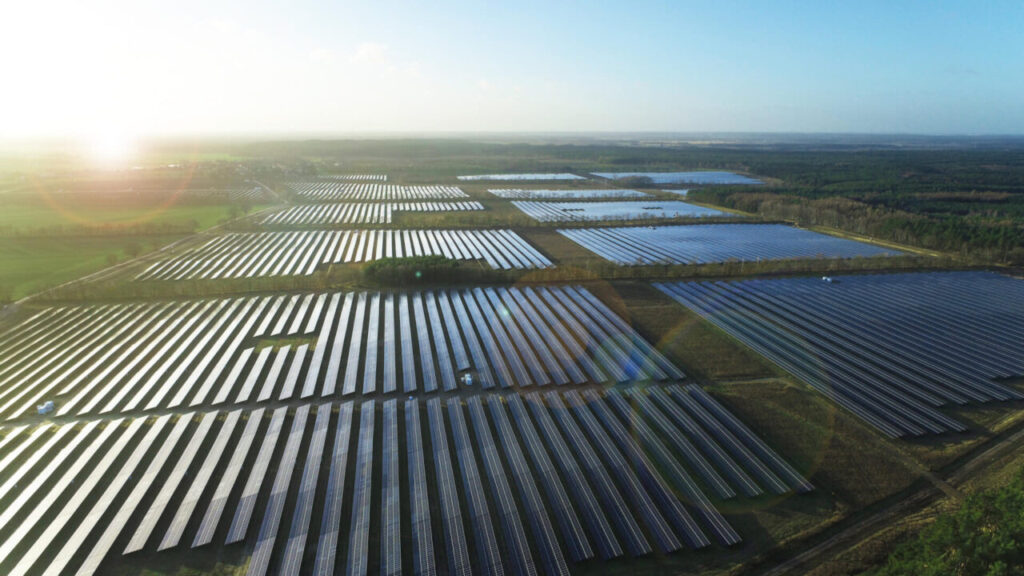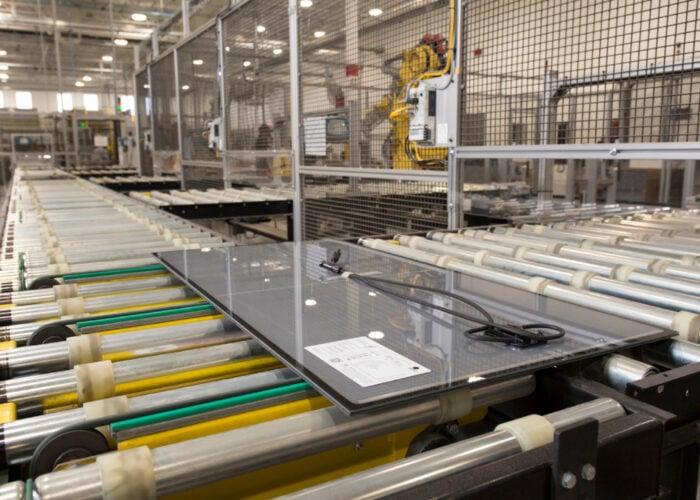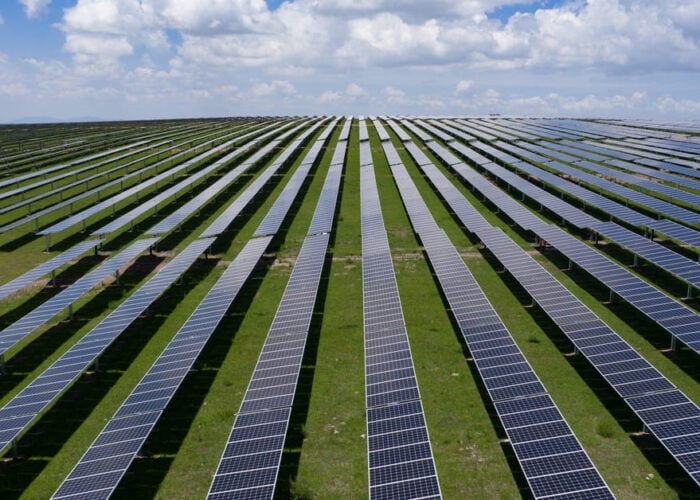
European solar buyers’ confidence fell to a record low level in July 2025 due to “growing caution among buyers” in a more “volatile” macroeconomic environment.
These are the conclusions drawn by sun.store in its latest PV Index report, charting solar component prices and market sentiment in Europe. July’s PV Purchasing Managers’ Index (PV PMI), a snapshot of industry optimism based on surveys of 1,321 sun.store users, fell to 65, the lowest figure recorded since the launch of the index.
Try Premium for just $1
- Full premium access for the first month at only $1
- Converts to an annual rate after 30 days unless cancelled
- Cancel anytime during the trial period
Premium Benefits
- Expert industry analysis and interviews
- Digital access to PV Tech Power journal
- Exclusive event discounts
Or get the full Premium subscription right away
Or continue reading this article for free
While this is still well above the score of 50 that sun.store identifies as the point at which industry buyers expect the market to expand, the three-point decline from the 68 recorded in June 2025, itself a year-low figure at that point and also recorded in July 2024, is a notable decline. This trend, alongside the percentage of those surveyed who expect to purchase “more”, “less” and “the same” quantities of products in the coming months, is shown in the graph below.
“We are currently experiencing a seasonal summer slowdown — a trend observed even among our merchants, many of whom have enabled ‘holiday mode’ on the platform to signal limited availability and communication,” said Krzysztof Rejek, sun.store VP of sales. However, Rejek noted that the recent decline in optimism could go beyond mere seasonal variation.
“Low stock levels and uncertain pricing in the coming weeks are compounding the situation,” Rejek said. “That said, we are closely monitoring the market to see whether activity picks up sharply in September or if this more cautious sentiment persists.”
These figures reflect growing uncertainty in the global solar supply chain, from the increasingly protectionist rhetoric coming from the US government this year to the news that Chinese polysilicon producers are planning to curtail production capacity. The sun.store report named the latter event as particularly significant, noting that the price of upstream solar components could begin rising as quickly as the fourth quarter of this year, before “cascading” into module and inverter pricing in Europe.
Indeed, this low PV PMI figure comes at a time where, for a number of solar products, prices have stabilised or fallen, trends that would imply greater confidence among prospective buyers.
According to sun.store, the average price of n-type monofacial and bifacial modules fell between June and July, reaching €0.095/Wp (US$0.11/Wp) and €0.099/Wp (US$0.12/Wp) respectively, the third consecutive month that prices have fallen for both module types, and the first time that the average price of bifacial n-type modules has fallen below €0.1/Wp since March. Changes in module price, and the apparent lack of impact on buyers’ confidence, are shown in the graph above.
Inverter prices and confidence stabilise
Inverter prices, meanwhile, have been more stable this year, with sun.store noting two consecutive months of month-on-month price declines for all four inverter types tracked: hybrid inverters of less than 15kW and more than 15kW, and on-grid inverters of less than 15kW and more than 5kW.
Smaller hybrid inverters continue to be the most expensive kind of inverter, with an average price of €102.48/kW, compared to the €23.91/kW reported for larger on-grid inverters, the first time that this figure has fallen below €24/kW.
Buyers’ confidence in inverter brands has also remained relatively stable, with Deye and Huawei ranked as the most popular hybrid and string inverter brands, respectively, each month since April. This compared to more fluctuations in confidence in solar module brands, where Jinko was the most popular module brand in Europe in July, up from second-most popular in June, and Trina fell from the most popular brand in June to the fourth-most popular brand in July.






